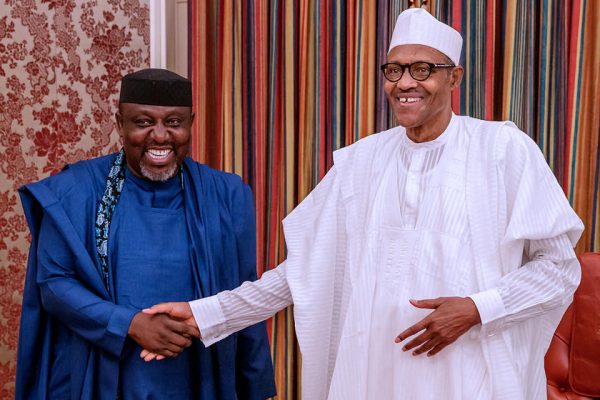Paragraph 1: The Passing of a Nigerian Leader
General Muhammadu Buhari, former president of Nigeria, passed away on Sunday at a London hospital after battling an undisclosed illness. His death was announced by his former spokesperson, Mallam Garba Shehu, marking the end of an era in Nigerian politics. Buhari’s political journey was marked by perseverance, having contested the presidency three times before ultimately securing victory in 2015 under the banner of the All Progressives Congress (APC). His win against incumbent President Goodluck Jonathan signaled a significant shift in the political landscape. The news of his death sent ripples through the nation and beyond, prompting reflections on his legacy and the future of Nigerian politics.
Paragraph 2: Gathering of Allies and Supporters
Following the announcement of Buhari’s demise, several prominent figures who were close to the former president were seen outside the London hospital where he passed away. Among those present were Boss Mustapha, former Secretary to the Government of the Federation, and Rochas Okorocha, former governor of Imo State. Their presence underscores the impact Buhari had on individuals within his political circle and the respect he commanded. The gathering of allies and supporters serves as a testament to the relationships he forged throughout his political career. Their presence also highlights the solemnity of the occasion and the shared sense of loss felt by those who worked closely with the former president.
Paragraph 3: Buhari’s Political Trajectory
Buhari’s path to the presidency was a testament to his political tenacity. He initially entered the political arena as a military leader, serving as Nigeria’s head of state from 1983 to 1985 after a military coup. His return to democratic politics saw him contest the presidency unsuccessfully in 2003, 2007, and 2011, demonstrating his unwavering commitment to seeking the highest office. His eventual victory in 2015 marked a culmination of his political aspirations and a significant achievement for the APC. This journey reflects both the challenges and triumphs he experienced within Nigeria’s complex political landscape.
Paragraph 4: Policy and Governance During Buhari’s Presidency
During his time in office, Buhari’s administration focused on key areas such as combating corruption, tackling insecurity, and diversifying the Nigerian economy. His anti-corruption campaign aimed to address systemic corruption within government institutions and promote transparency. Efforts to address insecurity focused on combating Boko Haram and other militant groups that posed threats to national stability. The drive for economic diversification sought to reduce Nigeria’s reliance on oil revenue and promote growth in other sectors. These policies reflected his priorities for the nation and his vision for a more stable and prosperous Nigeria.
Paragraph 5: Legacy and Impact on Nigeria
Buhari’s presidency leaves behind a complex legacy marked by both successes and challenges. While his supporters point to strides made in combating corruption and improving security, critics raise concerns about human rights issues and economic struggles. His impact on Nigerian politics is undeniable, shaping the political discourse and leaving a lasting imprint on the nation’s trajectory. His legacy will continue to be debated and analyzed for years to come, with varying perspectives on his effectiveness and overall impact on Nigeria’s development.
Paragraph 6: The Future of Nigerian Politics
Buhari’s passing marks a turning point in Nigerian politics, leaving a void that will need to be filled. The nation now faces the task of navigating a future without his leadership, prompting questions about the direction of the country and the political landscape. The transition of power and the emergence of new leaders will shape the next chapter of Nigerian politics, and the nation will need to address the challenges and opportunities that lie ahead. The future will reveal how Nigeria builds upon the foundations laid during Buhari’s presidency and charts a course towards sustained stability and progress.


